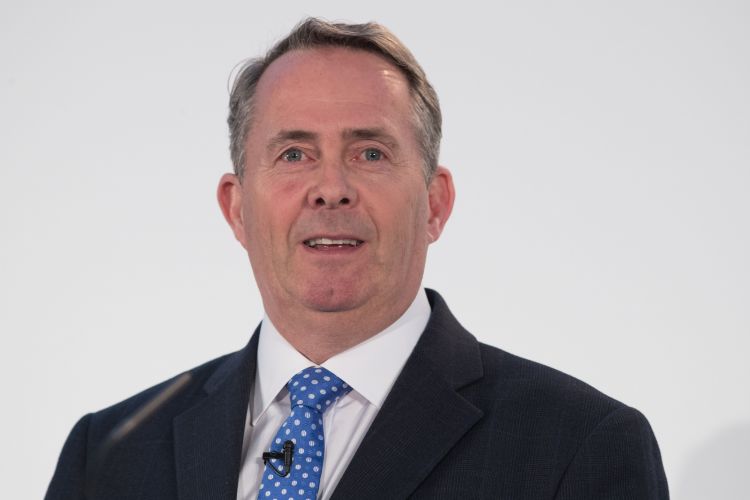Liam Fox's vision of Britain's trade future is dishonest and potentially dangerous

Liam Fox’s speech to the Conservative Party conference this week was a mixture of boasts, bombast and British Empire-tinged nostalgia.
The international trade secretary was keen to tell how he and other trade ministers have ‘travelled to over 100 global markets’ to promote the virtues of free trade.
But he didn’t say how future trade deals involving the UK would protect workers – or what the real prospects for the UK being able to strike trade deals actually are.
Workers’ rights-free trade?
If trade deals don’t protect workers’ rights or public services, or support decent jobs, they can’t benefit working people or society. So Fox’s vision of free trade presents a clear danger.
In his speech, he mentioned that the government has started to talk to countries such as the Gulf States, the USA and Korea about post-Brexit trade deals. But these countries are all well-known abusers of workers’ rights.
In the Gulf States, millions toil in forced labour conditions. In the USA ‘Right to Work’ laws in some states make unions effectively illegal. In South Korea, union leaders are locked in jail for years.
Over the summer, Fox dismissed other issues affecting workers. During his visit to the USA, he batted away concerns that they would use a future trade deal with the UK to increase privatisation in the NHS or force chlorinated chickens into our markets.
Yet he did not say how UK trade deals would carve-out protections for public services or public health.
The TUC is calling for the UK government to include binding protections in all future trade deals to ensure that workers’ rights and social regulations are respected, and they must contain explicit exemptions for public services.
Nowhere fast
Fox’s speech was also dishonest about the real prospects of UK being able to negotiate trade deals post-Brexit.
Currently the UK is part of over 40 free trade agreements via EU membership.
Fox said the government intended to essentially copy and paste these agreements with other countries after we leave the EU.
However, difficult as it sometimes seems for the government to realise, trade deals involve negotiation. To replicate these trade deals, the UK needs the 40+ countries to agree to sign up to them.
And at the moment, despite all the photo calls we’ve seen between Fox, Theresa and foreign leaders, countries like Japan are saying they don’t want to start negotiating yet.
This is because countries want to know the shape of the final UK- EU deal before they make any commitments. In particular, they want to know if the UK is going to remain a member of the single market after Brexit.
This is perfectly logical.
If the UK continues to be a member of the single market, its offer to other countries provides far greater financial rewards. They would get tariff free trade not only with the UK but the rest of the EU for many of their goods. If the UK crashes out of the single market, however, countries reduce tariffs on trade with the UK.
This means that no trade negotiations can really start until at least a final deal between the UK and EU is agreed, which is unlikely to be before March 2019.
Customs confusion
Even after the UK leaves the EU, UK trade negotiations may not really be able to start if the government carries out the plans it announced in its paper on future customs arrangements, which suggests that the UK will stay in a form of customs union for an interim period.
The paper also said the UK would be able to start (but not sign) trade talks in this interim period. However, since being in a customs union means having common trade deals and external tariffs with the EU, it’s difficult to imagine how the UK could meaningfully start trade negotiations in an interim period.
The TUC believes that the UK would be better off staying in the EU customs union so we can continue to benefit from the decent jobs on good pay that EU trade delivers, at least in the immediate term.
This would mean the UK continues to be part of EU trade agreements. While these trade agreements contain commitments on paper to ILO standards on workers’ rights, they have not been effective. So the TUC is campaigning with the ETUC for EU trade agreements to also contain stronger protections for workers’ rights, as well as protect public services and other social regulations. We are call on the government to support such protections.
Rather than conjuring visions of trade deals that may never materialise, Fox should work with trade unions to ensure free trade deals involving the UK really do benefit society by promoting workers’ rights, decent jobs and fair wages.
Stay Updated
Want to hear about our latest news and blogs?
Sign up now to get it straight to your inbox
